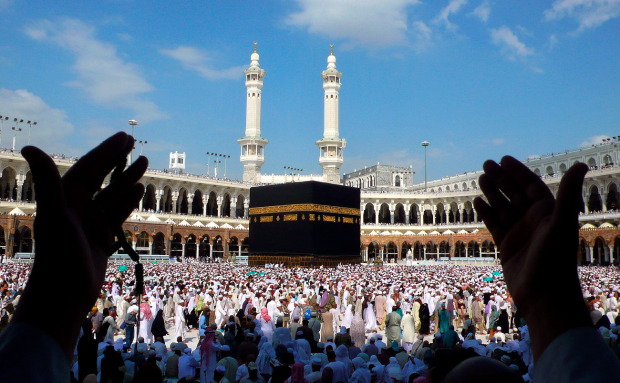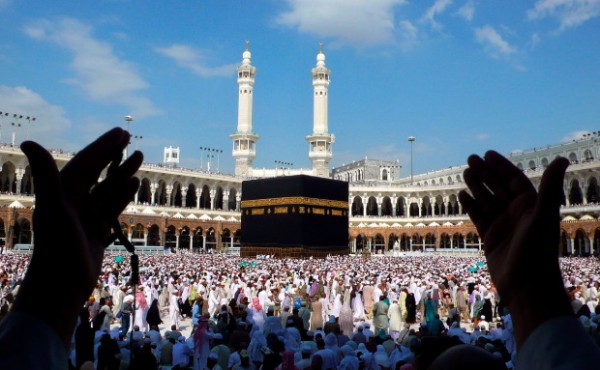

Year after year, holiday after holiday passes with no progress in the Holy Land. In August, Muslims celebrated the end of Ramadan, with no peace in the Holy Land. In October, Jews marked the High Holy Days with Palestinians still under occupation. Now, as millions of Muslims descend upon Mecca to perform the pilgrimage, or Hajj, peace between the children of Abraham remains as elusive as ever.
Indeed, there is great fear that even more violence will erupt, and the chance for a lasting peace will become even more remote that it already seems. Yet, far beyond the cynical political calculation of politicians, the Realpolitik of various world leaders, and overarching geopolitical interests of nations, there lies the lives of people, real live people, who have suffered and are suffering tremendously. That is what I see as a person of faith, who values the Holy Land tremendously.
This land is very special to me, as a Muslim. It is the land of my ethnic and spiritual father Abraham, to which he fled the oppression of his people for his staunch belief in the Lord God. It is the land in which my Master Abraham, and his sons Isaac and Jacob, are buried. The rituals of the Hajj, in fact, are all a re-enactment of the story of Abraham with his son Ishmael in the plain of Paran.
In this Holy Land, my Master Joseph, who preached the faith of the One God to my Egyptian people many centuries ago, was also laid to rest. In this land, my Masters David and Solomon ruled in justice and faith, and on this land, my Master Jesus Christ tread his holy footsteps, preaching the Gospel to the Children of Israel. And to this most holy of lands, my Master Muhammad traveled by night to lead all of the prophets in prayer. For all these reasons and more, the veneration of this land will be ingrained in and be with me forever.
In such a wondrous place, there should be no violence. In such a wondrous place, there should be no occupation; no war; no sadness for the loss of life; no cries of children attacked by rocket fire; no screams of mothers holding their dead babies in their arms. In such a wondrous place, the children of Abraham should be living and working together in peace, just as their holy fathers did all those years ago.
Yet, sadly, despite the wondrous nature of the land, these are not wondrous times. Extremists who hail from both Isaac and Ishmael are bent on seeing the other destroyed. Politicians lack the courage to make the hard choices for peace. And as diplomats wrangle over what to say and do to save political face, terrible misery continues to envelope this most wondrous and holy of lands. As those diplomats wrangle, the blood of innocents, which defiles and chokes this most wondrous and holy of lands, continues to spill with abandon.
Will this sad state of affairs fail to awaken us? Will the cries of the Holy Land, in her utter anguish, not arouse us to try to bring and end to this suffering? It brings me no pain to see Jewish worshippers at the Western Wall: this was, after all, the wall of my Master King Solomon, about whose story I read in the Koran itself. And neither should it bring any misery to our Jewish brethren to see Muslims worshipping on the Temple Mount: in the chants of the Koran is the glorification of Moses, David, Abraham, and Solomon, and most importantly, the glorification of our mutual Lord and God.
This is the middle way, about which the overwhelming majority of us can agree. There can be peace between Christian, Jew, and Muslim in the Holy Land; there can be mutual respect for the life of the other in that most wondrous land; the cries of the innocent can be quieted and replaced with the laughter of children hopeful of a bright and prosperous future. We live this reality in America, and it is most joyous indeed. It just takes courage and fortitude, and reliance upon our Lord, to make this come to pass over there. As I behold the scurrying of the politicians near and far, I realize that change cannot come from they. So let that change come about through us.



